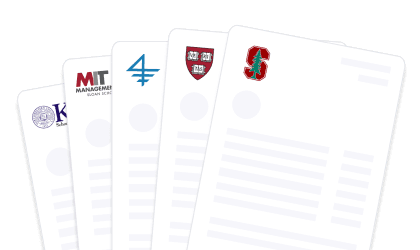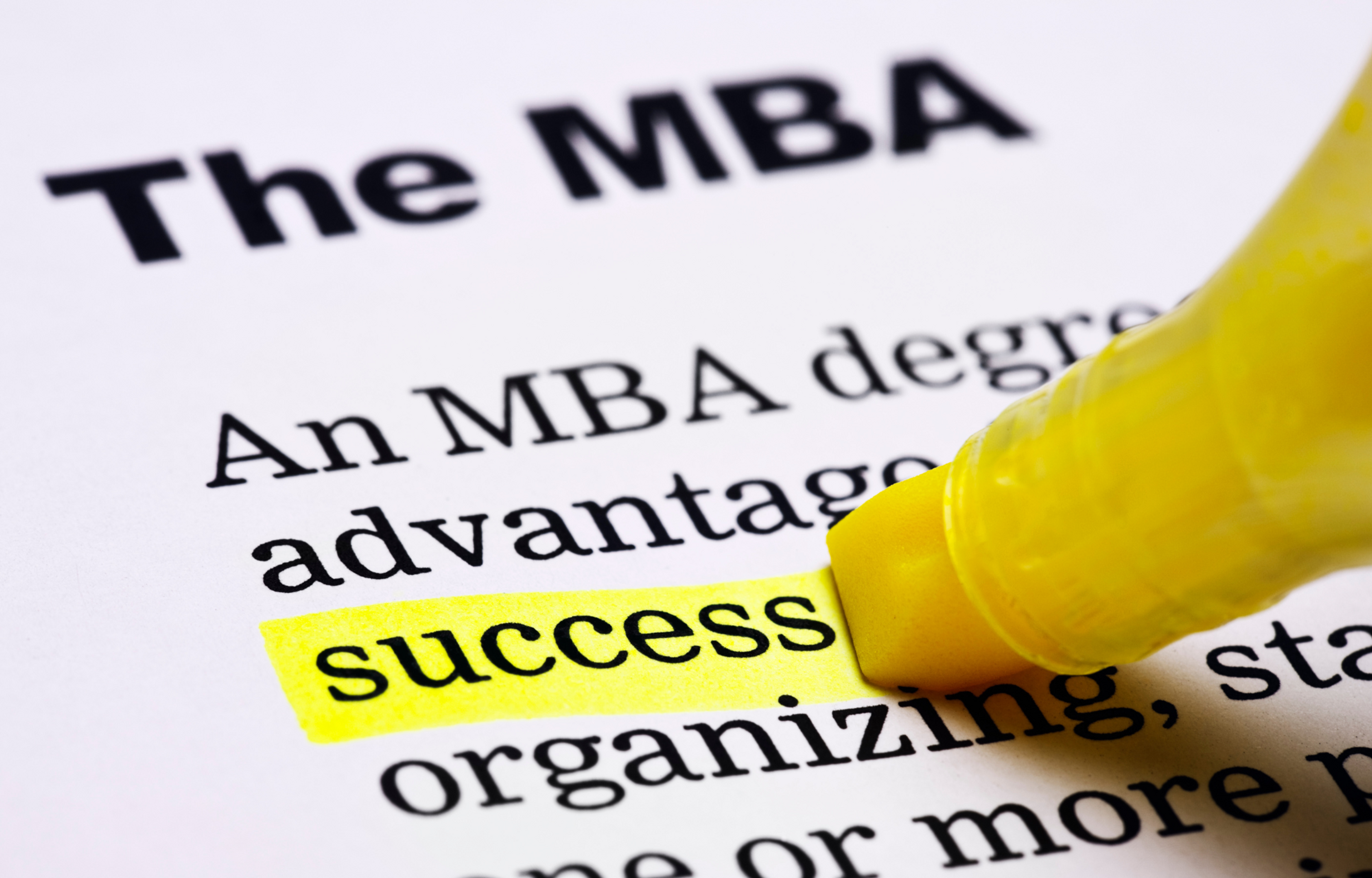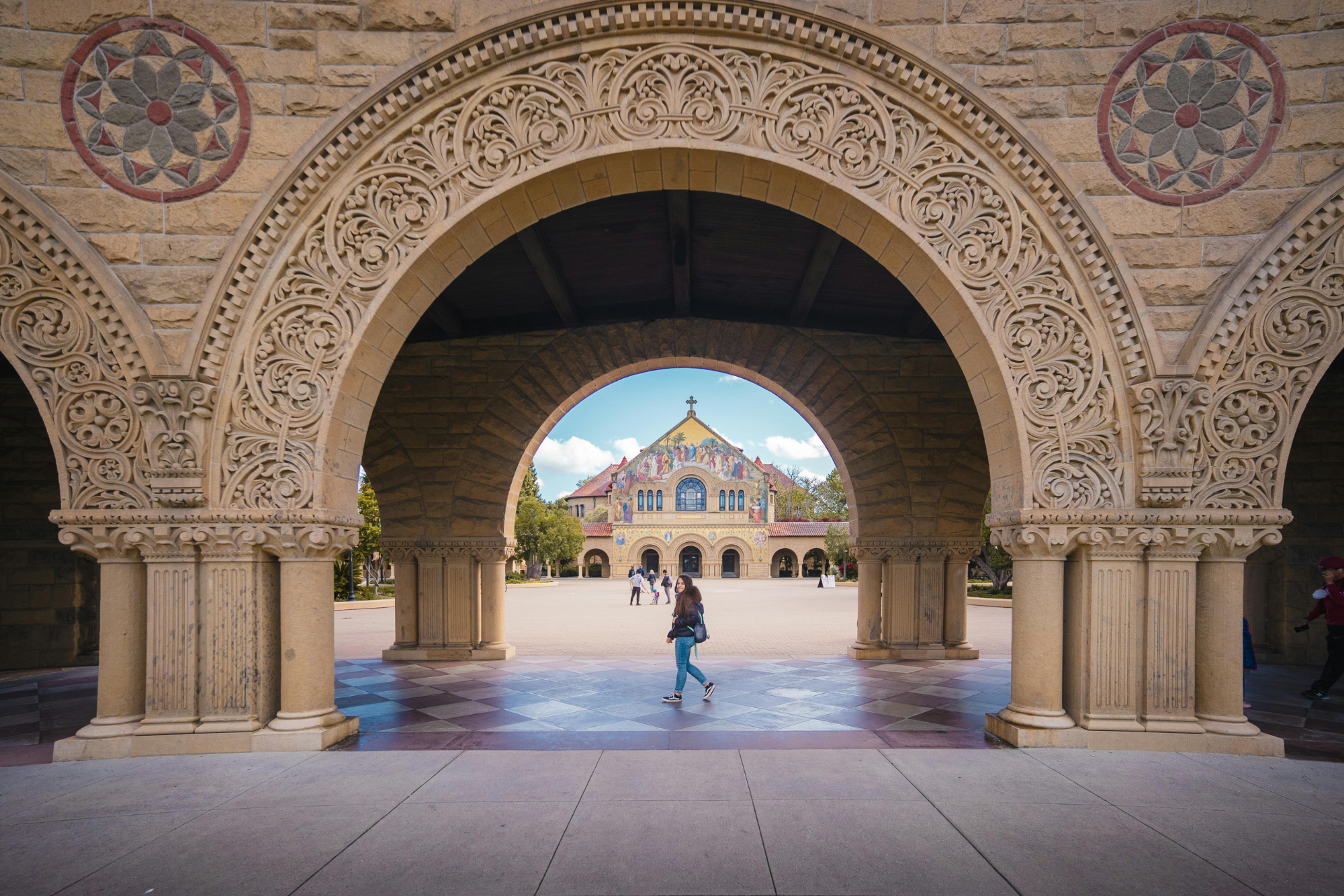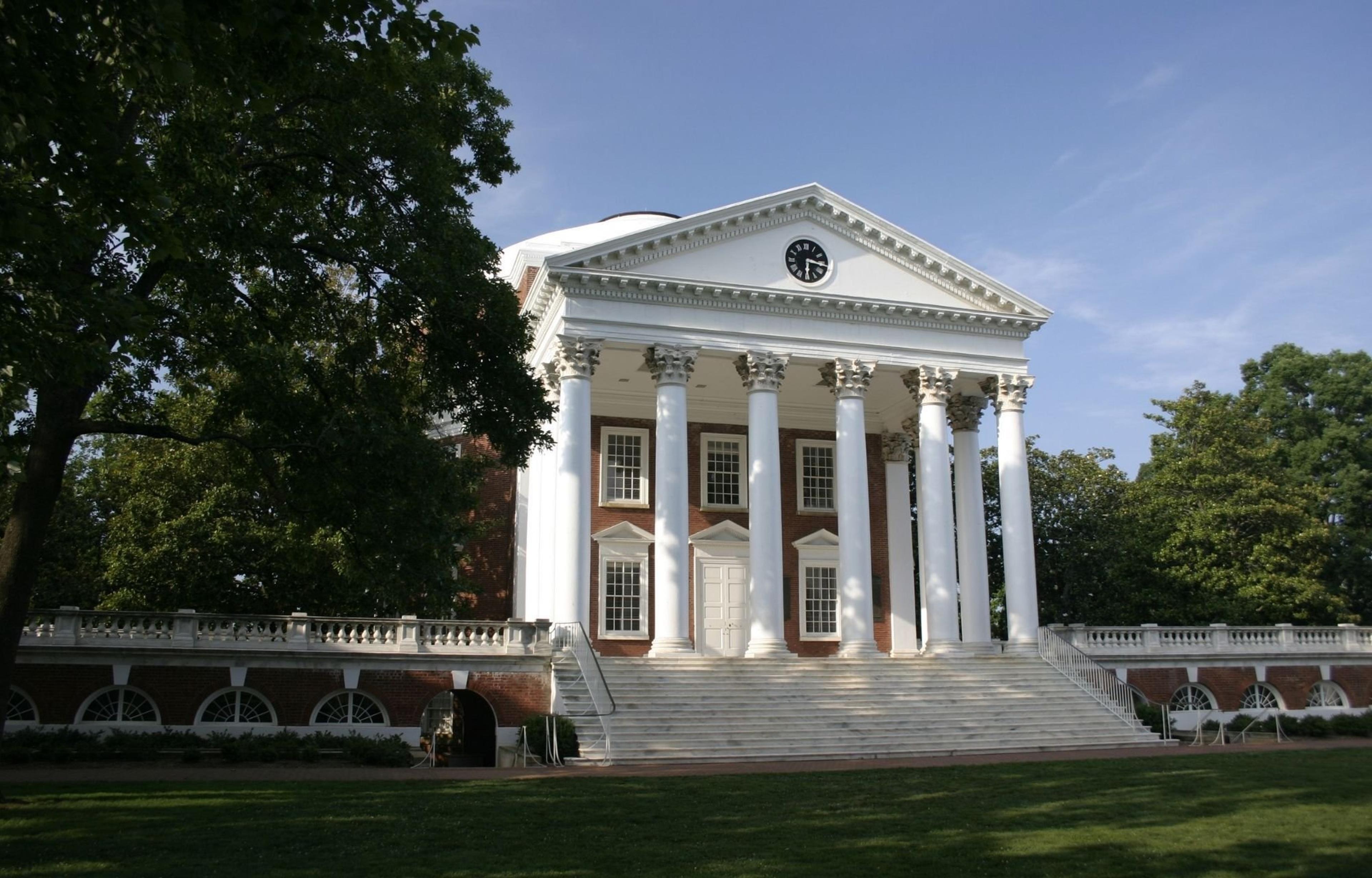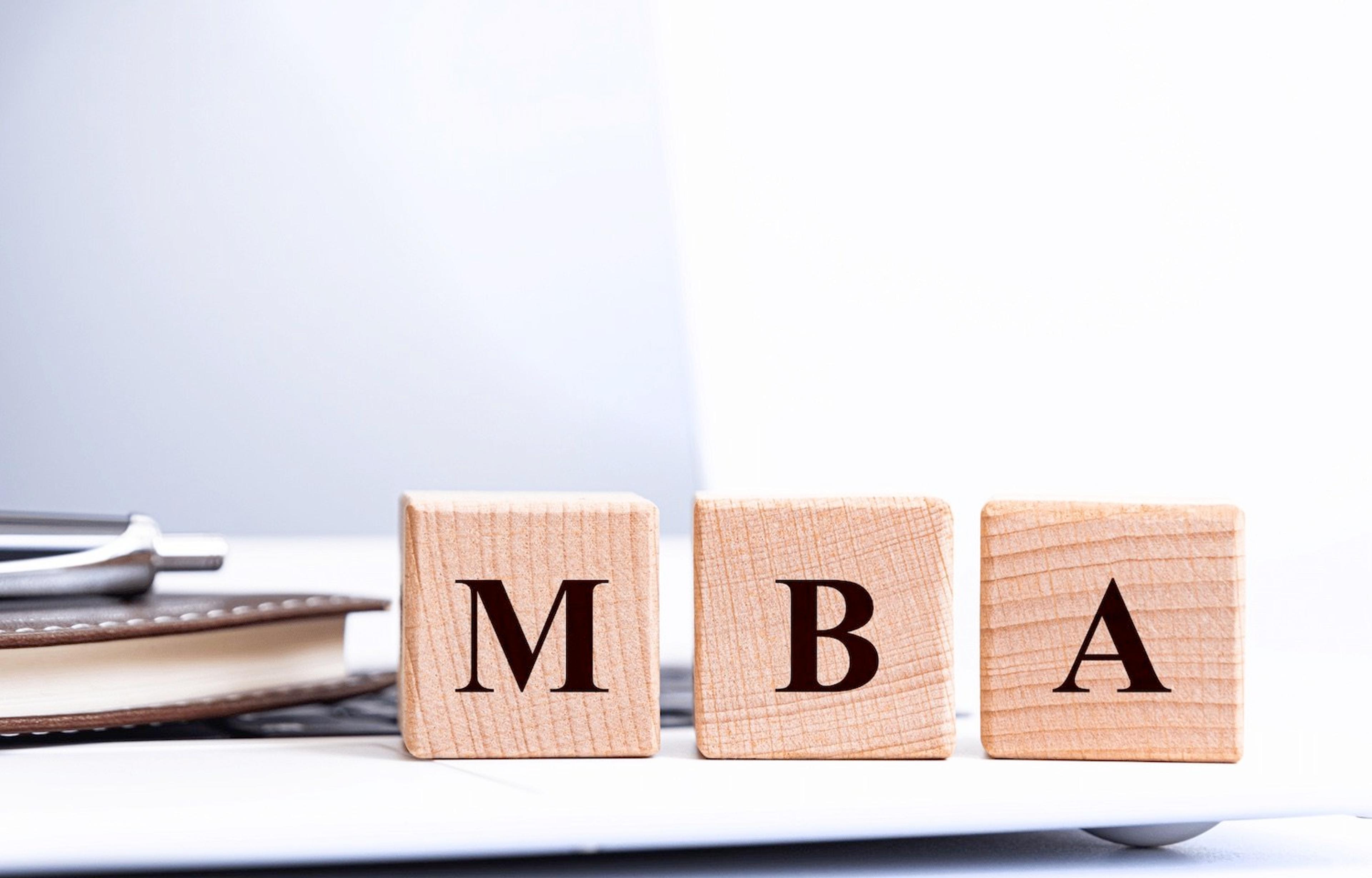
Join a free event
Learn from top coaches and industry experts in live, interactive sessions you can join for free.
Table of Contents
Here are some of our top coaches' top pieces of advice for nailing the MBA admissions interview.
1. Most interviews are conversational and meant to gauge how you communicate verbally and otherwise, and whether that’s consistent with how you relate your story in written materials. Keep in mind that this conversation is very much a two-way street – you’re getting the opportunity to evaluate the program as much as they’re taking the time to get to know you better as a candidate. The interviewer (whether it’s AdComm or an alum) wants to represent the school well, and leave you with a good impression!
- Laura N., Ross MBA, Professional Admissions Coach
2. Always ground your answers in the “why.” The most successful interview applicants I spoke to were highly effective in explaining the choices they make (Simon Sinek does a good job explaining it). And having a strong perspective is what gives admissions committees confidence that you can hold your own opinion during class discussions. Lastly, I’d also have a strong DEI anecdote to talk through at length.
- Jon C., Haas MBA

3. Imagine you're talking to a future colleague. You'll be professional, but still friendly and warm, perhaps with an occasional smile and even a joke. A lot of applicants are international, and I acknowledge there are cultural differences. In many countries, there is an expectation of extreme formality in interviews, but in the US, we love the "airport test." The airport test is simple: would your interviewer want to be stuck at an airport with you?
In my interviews with the top business schools and MBB consulting firms, most interviewers were very responsive to a friendly conversation approach, and I even got bonus points (one acknowledged this after I received the offer) for a couple of jokes I told! But it's always important to read the room–if the interviewer seems more reserved, don't crack a joke.
- John P., Wharton MBA
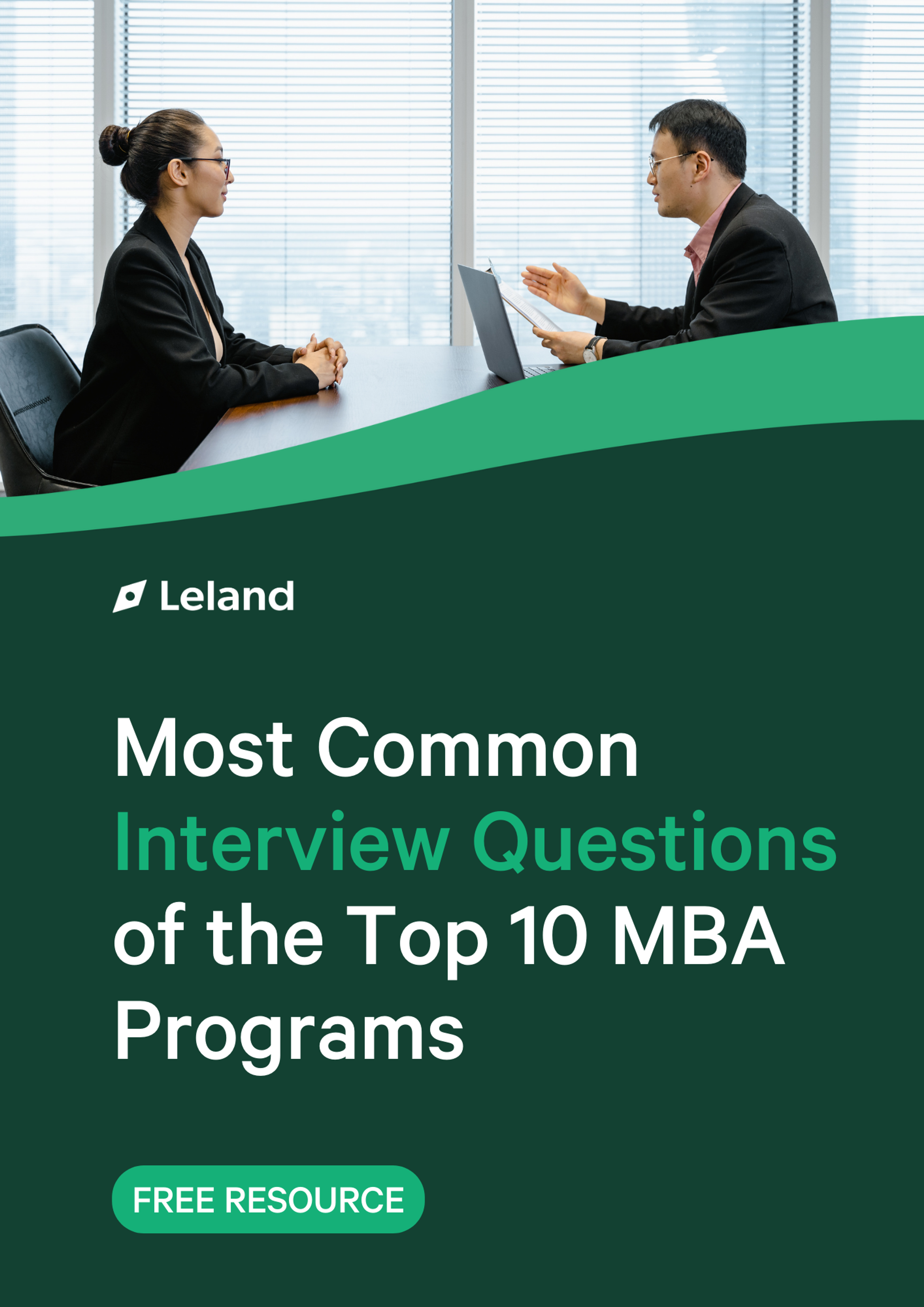
Most Common Interview Questions of the Top 10 MBA Programs
Download our free guide to the most common MBA interview questions to be as prepared as possible to nail your interview
4. I always recommend that applicants prepare extensively, then be flexible during the interview. Common interview questions for each school are widely available - have answers prepared ahead, but be ready to adapt based on the flow and direction of the interview. Think exhaustively about each bullet on your resume as interviewers like to unpack specific experiences. What was the impact? What did you learn? What was the team dynamic? How did you exhibit leadership?
Additionally, imagine yourself as a student and how you hope to take advantage of a school's specific resources to support your goals, both professional and personal. And just as crucially, think about how you would give back to the student community. Be prepared to speak to these with enthusiasm. Interviewers are assessing for professional and community fit, and your genuine interest is a significant piece of this.
- Christian S., Northwestern Kellogg MBA
5. Many interviews are behavioral in nature or a derivative of as much. Be prepared to tell your favorite stories about work, teammates and mentors you’ve learned from and been challenged by, and moments in your life and career that have made you think critically about why you’re taking this next step toward an MBA. Lastly, don’t be afraid to ask your interviewer questions about their life, career arc, and maybe even family! We’re all not too far off from being colleagues with many of our interviewers if we aren’t functionally already and it’s always fruitful to establish a meaningful personal connection with anyone where you can.
- Gaby J., Stanford MBA/MD & Knight-Hennessy Scholar
6. The best advice I have for candidates on the day of their MBA interview is to be yourself and to be confident, but not cocky. It is important to have a positive attitude and stay grounded. Many people get nervous before interviews, but this is a good thing because it shows that you care about the outcome.
Preparing for an interview can seem like a daunting task, but it’s really not that bad if you know what you need to do. The first thing that you should do is research the school and know what they are looking for in their candidates. Read about their values and their mission. Study the school in-depth. Take some time to talk with teachers, alumni, and employees of the school. Check the alumni accomplishments and see if you align with any. Ask yourself, “Do I see myself there?” Because if you do, the interviewer will be able to see your passion and drive, which will make you stand out from other candidates.
You also want to practice answering questions related to your past work experience and future aspirations so that when it comes time for the interview, you will feel more calm and confident. When speaking about your experience and skills, keep it short and sweet since you don't have too much time.
Each question asked by the interviewer has a purpose, so pay attention to the way you respond. For example, “Tell me about yourself” may look like an easy question to answer, but it’s not. What the interviewer wants to hear is a summary of the most important things that make you unique. They already have your resume, so do not fall into the trap of listing every job and job title you had. Give them new information and maybe add a “fun fact about me” before you finish answering.
Show up to the interview on time. Your punctuality says good things about you—especially if the interviewer may be running late. Plus, there's less pressure on you if they're running late and will let you pass quickly through your first round of flash questions.
Maintain eye contact when they’re speaking. A lack of focus can indicate a lack of concentration or interest in the school. I cannot stress this enough: do not fake listen. This means that when the interviewer is talking, show genuine interest in what they're saying and don’t interrupt them. Do not drift off or have an answer prepared in your head while they're speaking. It is okay to pause sometimes to gather your thoughts. This will show your level of competence and maturity. Practice the art of real listening.
- Dalal A., Northwestern Kellogg MBA/MS
Ace Your MBA Interview WIth the Help of an Expert
Work with a world-class MBA coach for personalized feedback and one-on-one mock interviews. These coaches are MBA application experts and would love to help you get into your dream program.
Preparing for your MBA interview can be a stressful time, but also an exciting one! Here are some other resources to help you prep.
- How to Ace Your MBA Interview: With Prep Questions and Answers
- How to Nail Your Virtual MBA Interview
- How to Build a Lasting Connection in Your MBA Interview
- Wharton Interview Guide: The Team-Based Discussion
- How to Ace Your HBS 2+2 Interview
- Ace Your Columbia Business School MBA Interview: Expert Tips and Sample Questions
Browse hundreds of expert coaches
Leland coaches have helped thousands of people achieve their goals. A dedicated mentor can make all the difference.












